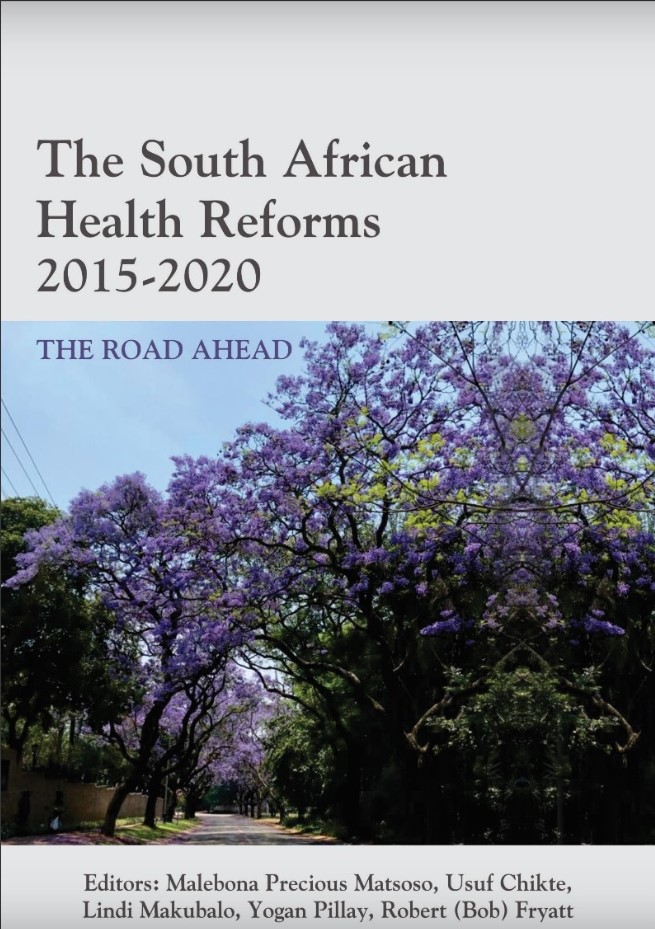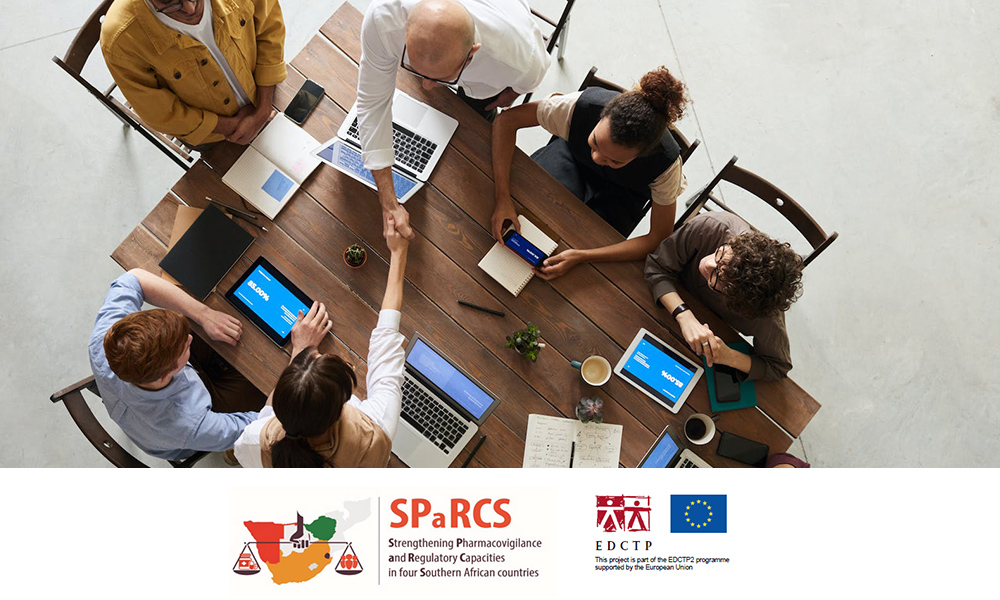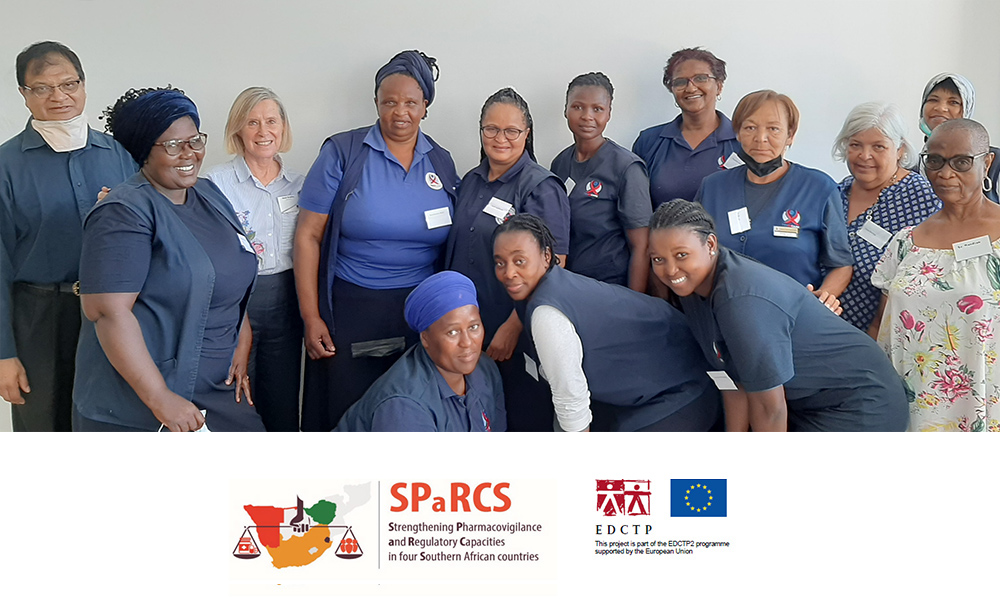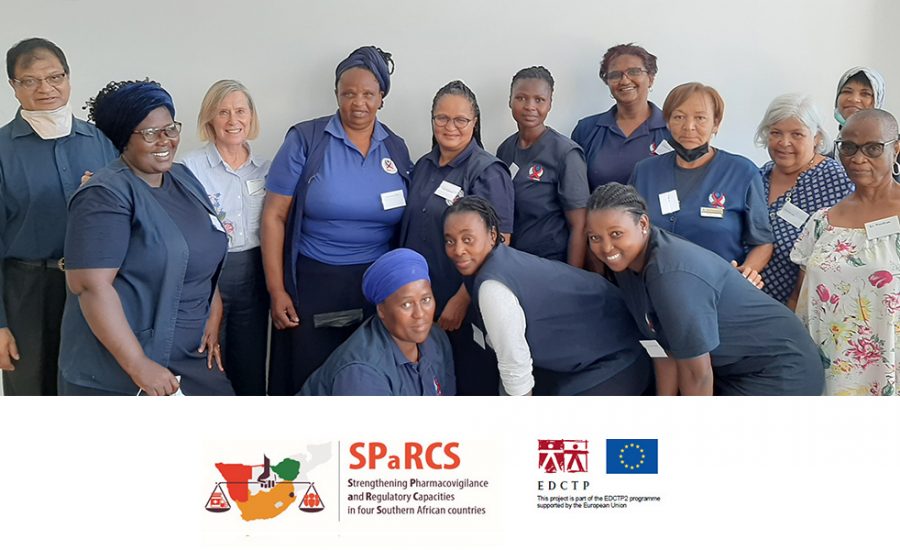
The South African Health Reforms 2015 -2020: The Road Ahead
15 June 2023
Workshop Series on Strengthening Pharmacovigilance Systems
14 July 2023
SPaRCS presented its first in-person pilot training to community health workers
Since late 2021 the SPARCS Project has been developing a pilot training for Community Health Workers (CHWs) on Adverse Drug Reactions and Pharmacovigilance
by Michelle Viljoen
The reporting of adverse drug reactions (ADRs) is a shared responsibility. Key stakeholders include healthcare professionals, pharmaceutical industry, regulatory authorities, clinical institutions (private and public), academic researchers, the media and the public at large. Underreporting of ADRs is one of the biggest global challenges in pharmacovigilance especially in low- and middle-income countries. One of the positive outcomes of the COVID-19 pandemic was the emphasis it placed on pharmacovigilance and ADR reporting. The media, in particular, focused on the importance of medicine safety and increased the awareness and knowledge of ADR reporting especially amongst the general public.
The main objective of work package 4 (WP4) as part of the Strengthening Pharmacovigilance and Regulatory Capacities in four Southern African countries (SPaRCS) project is to raise the profile of the national regulatory authorities (NRAs) and pharmacovigilance (PV) systems in four Southern African countries through capacity building of relevant health professionals. It became evident after six months into hard lockdown that the original plans for WP4 were not feasible and that professional healthcare workers were so entrenched and consumed by COVID-19 that alternative action plans were needed to be implemented. Whilst the primary outcome remained to maximise the impact of this part of the SPaRCS project we refocussed the capacity building intervention to community healthcare workers (CHWs) instead.
A pilot training project was planned for a selected group of CHWs. In collaboration with the non-governmental organisation, TB HIV Care in Cape Town a pilot training presentation was developed and peer reviewed internally before it was presented to the selected CHWs. TB HIV Care assisted in identifying 10 CHWs from across the Cape Town Metropole and brought them together for a day-long session at their training facility in Cape Town on 26 January 2022. This pilot training session was primarily aimed at training CHWs on what an adverse drug reaction is, how to identify it, what to report and how to report it. At the end of the session, the CHWs were requested to complete a feedback questionnaire which was used to amend and improve the training materials.
The presenters on the day were Prof Michelle Viljoen (School of Pharmacy at UWC) and Dr Mukesh Dheda (National Department of Health) and it was facilitated by Dr Hazel Bradley (School of Public Health at UWC) and Mrs Tricia Sterling from TB HIV Care.
The training session included gathering real-world feedback of the personal experience of CHWs and adverse drug reporting in their communities. An interactive presentation using the developed PowerPoint slides were presented in two parts with a roleplay scenario.. Evaluation was done through a pre-test post-test questionnaire and questions to gather feedback pertaining specifically to the content of the training material, handouts and presentation thereof.
The general feedback from the CHWs was positive and appreciative. It was evident from their feedback and participation that they were eager to learn more and they requested for follow-up sessions.
The feedback from this pilot training session and from SPARCS collaborators has led to an adaptation of the training PowerPoint presentation. This is being tailored by SPaRCS partner countries so that it can be used as the basis of CHW train-the-trainer sessions in Eswatini, Namibia, and South Africa in late 2022 and early 2023.
In October 2022, Prof Michelle Viljoen and Dr Mukesh Dheda, on behalf of the SPaRCS team, presented a Poster entitled “Developing Training Material for Community Health Workers on Adverse Drug Reaction Reporting: A Pilot Project” at the 21st Annual meeting of the International Society of Pharmacovigilance (ISoP) which was attended by more than 700 delegates from all over the world. There was a lot of interest in the presentation as it was the only one that focused on CHWs during the conference.
Acknowledgements:
The SPaRCS project is part of the EDCTP2 programme supported by the European Union (grant number CSA2018ERC-2332-SPaRCS)

